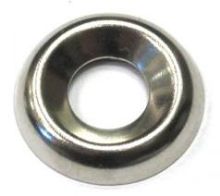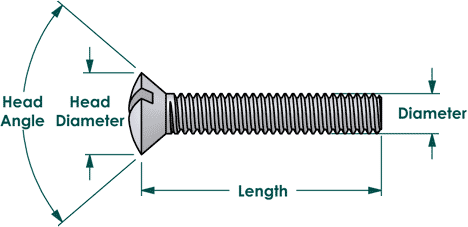-
Posts
6,542 -
Joined
-
Last visited
Content Type
Profiles
Forums
Events
Blogs
Gallery
Store
Everything posted by Northmount
-
CDSP IP address indicates he/she is in Brussels, Brussels Capital, 1012, Belgium A note to all members, especially new members: Please list your location. It helps get you better answers, especially for things that are local to you. You might also find someone who lives close to you that can help with one-on-one tutoring, etc. Maybe even a free coffee! Tom
-
.thumb.jpg.6e903dd66163ad5672f00f144058c571.jpg)
Front pocket wallet
Northmount replied to Bob Blea's topic in Purses, Wallets, Belts and Miscellaneous Pocket Items
Just really too nice! Tom -
Vacuum cleaner motors may be much higher speed than what you want. They really wind up! Tom
-
As a moderator, I don't have the time to read every post that comes in. I do have a life beyond LW.net. Sometimes there may be 2 or 3 or more days between my appearance here, and I don't go back more than about a day to see if there is anything that needs fixed or commented. Moderators are volunteers, not paid full-time staff. You can "report" a post that needs attention by clicking on "report post" in the upper right of the post. Then it is flagged to all moderators and they will see it when they next login. Hope you have a better day today! Tom
-
You might need to remove this spacer and make your own if an 8-32 Chicago Screw is too large. You can see how long it needs to be and cut tubing to fit. I'm trying to remember if I used tubing. I may have used a hex nut as a spacer. Likely 1/4" NC. I know I started out trying to use a piece of tubing, but when you mentioned that the Chicago Screw won't fit the existing spacer, I doubt that it would fit 1/4" tubing either. Memory is less than perfect! Have to go check now to see. Will edit this after I check it out. Tom Edit: Okay, the shank of the 8-32 Chicago screw just nicely fits through a 1/4" NC hex nut. So I'm pretty sure that is what I used instead of a piece of tubing. You could pad that with an extra washer if you need more height, or use a stack of washers. Edited post above to replace 1/4" tube with a 1/4" NC Hex Nut.
-
Hope you are doing much better by now. I would really appreciate some written instructions and source for bladders. I think others here would like them as well. Let us know how you are doing. Tom
-
Cap the mask cartridges when not in use so the absorbing media is not used up by ambient air. Tom
-
Sorry I was so slow getting back to you this week. Too many things got in the way. See sketch in attached 3-ring binder clip.pdf and example hardware photos. You will have to play with dimensions to suit your clip. The spacer is a piece of 1/4" NC Hex Nut. If you are removing a binder clip from an existing binder, drill the smallest hole that will remove the rivet. Then you may be able to save any spacer they have used. I didn't realize there was a spacer there so had destroyed it! 3-ring binder clip.pdf
-
Three posts! Please all, hit submit only once, wait for the server to respond. It gets busy at times because we have so many active members, which is really great. Slow connections may also impact how long it takes to get a response. Tom
-
I'll put together a little sketch early next week. Tom
-
I have a 1 ton arbour press, same design. Used it to cut a bunch of 4" (100 mm) circles. I slid a 3' length of 3/4" pipe over the handle to make it easier to pull down. Rear of press was clamped to a solid bench. Had no problems. Tom
-
.thumb.jpg.6e903dd66163ad5672f00f144058c571.jpg)
What to use to seal leather after stamping & dying
Northmount replied to Curlywolf's topic in Leatherwork Conversation
deleted your duplicated posts -
.thumb.jpg.6e903dd66163ad5672f00f144058c571.jpg)
soaking veg tan leather ( grey lines appear)
Northmount replied to beltbuckles's topic in How Do I Do That?
Photos so we can see? Grey or bluish? If tends toward blue, then there is some iron contamination in the leather or due to a rack it was laid on. You can bleach out with oxalic acid. The colour is due to the same reaction as vinegaroon process. Tom -
.thumb.jpg.6e903dd66163ad5672f00f144058c571.jpg)
Deal of the Century!!! Amazing, Brand new like tools for sale.
Northmount replied to lachopperboy's topic in Old/Sold
From the IP address, he appears to be in the Arcadia, California, 91006 area. Tom -
3/4 oz and thinner are thin. Tom
-
Try this link Ohio Travel Bag. https://ohiotravelbag.com/shop/search.aspx?term=key plate#f=&p=1&s= Tom
-
Many will say 50%. Thinner leather may not be able to go that deep. You have to test, trial and error to get the feel and look that you like the best and hopefully your client likes too. Tom
-
Definitely iron contamination. Keep all iron fillings, etc. out of your leatherwork area. Oxalic acid will remove the spots. There are a number of threads about these spots if you want to search out more information. I would recommend that you be careful trying to bleach out small spots as that spot may now become lighter than the rest of the piece you are working with. I would do a quick bleach of the whole surface to try to maintain consistent colour across the item. Tom
-
If you warm it up, does the white residue work back in? It would likely be the fat. Need to warm it up and buff the extra back off. Maybe 2 or 3 times. Tom
-
The ones I tried were pretty cheap too. Princess Auto here in Canada. About $15 for a set of about 10 drive punches. Really thick edges with a steep taper. Tom
-
Some are pretty hard so may not cut even with a high end bandsaw. I tried touching up a set on a lathe using a carbide tool. No luck. Tom
-
His works, photos he has posted, can be copyrighted. How he braids, unless he can prove it is totally new, can not be copyrighted. Totally new type of braiding could be patented. If he makes an instruction manual, he could copyright it. Tom
-
When you let the smoke out, it quits working! And off topic, electronics are nothing but smoke and mirrors. So when you let the smoke out ... Tom
-
In my early days, I used to use a piece of 1/4" Masonite hardboard about 8" x 8". Placed on a sturdy table works well. Makes some racket, not as good as a marble slab, but works and is more portable. Tom
-
Check out this FB page, join it. They have photos and a database for Craftaids. Tandy Craftaid Template Database https://www.facebook.com/groups/1373586829381487/ Tom




